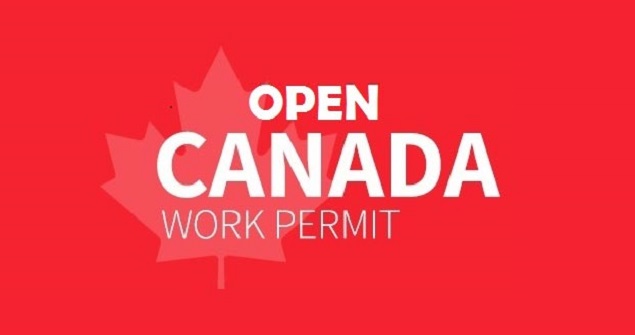Stay in Canada After Study

Stay in Canada After Study: A Comprehensive Guide
Introduction
Canada is one of the most popular destinations for international students, thanks to its high-quality education system, multicultural environment, and post-graduation opportunities. Many international students wish to remain in Canada after completing their studies to gain work experience, contribute to the economy, or even become permanent residents. This article explores the pathways, eligibility criteria, and strategies for staying in Canada after completing your studies.
Benefits of Staying in Canada After Studying
1. Post-Graduation Work Experience
- Career Advancement: Canada offers ample opportunities in various industries, enabling graduates to build their careers.
- Permanent Residency (PR): Work experience in Canada increases eligibility for PR pathways.
2. Cultural Integration
- Canada’s inclusive society makes it easier for international graduates to integrate into the workforce and community.
3. Economic Stability: Stay in Canada After Study
- A strong and diverse economy ensures job availability across multiple sectors.
Post-Graduation Work Permit (PGWP)
The Post-Graduation Work Permit Program (PGWPP) allows international students to work in Canada after completing their studies at a designated learning institution (DLI).
Eligibility Criteria
- You must have completed a program of study that is at least 8 months long at a DLI.
- You must apply for the PGWP within 180 days of receiving confirmation (e.g., a transcript or letter) that you have completed your program.
- Your study permit must have been valid during your course of study.
Duration of the PGWP
- The length of the work permit depends on the duration of your study program:
- Up to 3 years: PGWP is valid for the same length as your study program.
Application Process: Stay in Canada After Study
- Gather required documents, including proof of graduation and a valid passport.
- Pay the application fee (CAD 255).
- Wait for processing, which typically takes 80-180 days.
Permanent Residency Pathways
1. Express Entry System
The Express Entry system is one of the most popular pathways for international graduates to become permanent residents.
Key Streams
- Canadian Experience Class (CEC): Ideal for graduates with at least 1 year of skilled work experience in Canada.
- Federal Skilled Worker Program (FSWP): Open to individuals with foreign work experience.
- Federal Skilled Trades Program (FSTP): Targets those with experience in skilled trades.
Steps to Apply: Stay in Canada After Study
- Create an Express Entry Profile: Provide details about your education, work experience, and language proficiency.
- Receive an Invitation to Apply (ITA): If your CRS score meets the cutoff, you’ll receive an ITA.
- Submit PR Application: Provide all necessary documents and pay the application fee.

2. Provincial Nominee Program (PNP)
Many provinces have specific streams for international graduates.
Popular PNP Streams for Graduates
- Ontario Immigrant Nominee Program (OINP): International students with a job offer in Ontario.
- British Columbia Provincial Nominee Program (BC PNP): Focused on tech graduates and other in-demand professions.
- Manitoba Provincial Nominee Program (MPNP): Open to graduates with connections to Manitoba.
Application Process
- Apply through the province’s PNP portal.
- Receive a provincial nomination.
- Use the nomination to enhance your CRS score in the Express Entry system or apply directly for PR.
3. Atlantic Immigration Program (AIP): Stay in Canada After Study
Designed for international graduates and skilled workers who want to live and work in Atlantic Canada (Newfoundland and Labrador, Prince Edward Island, Nova Scotia, and New Brunswick).
Key Features
- No job offer requirement for recent graduates.
- Employers assist with the immigration process.
Gaining Canadian Work Experience
Work experience is crucial for many immigration pathways. Here’s how international graduates can secure jobs:
1. Networking and Job Fairs
- Attend career fairs hosted by universities and local organizations.
- Join LinkedIn groups and professional associations related to your field.
2. Internships and Co-ops
- Take advantage of internships during your studies to build industry connections.
- Some internships may lead to full-time job offers post-graduation.
3. Job Search Resources
- Job Boards: Explore platforms like Job Bank, Indeed, and Workopolis.
- University Career Centers: Utilize alumni networks and employment services.
Supporting Factors: Stay in Canada After Study
1. Language Proficiency
- Strong English or French skills are essential for job prospects and PR eligibility.
- Take recognized language tests like IELTS or CELPIP for English and TEF for French.
2. Credential Recognition
- Some professions (e.g., engineering, healthcare) require credential recognition by Canadian regulatory bodies.
- Apply for credential assessment through organizations like WES (World Education Services).

Challenges and Solutions
1. Finding Employment
- Challenge: Limited experience in the Canadian job market.
- Solution: Volunteer, network, and attend local workshops to gain experience and make connections.
2. High Cost of Living
- Challenge: Managing expenses while establishing a career.
- Solution: Consider living in smaller cities or sharing accommodation to reduce costs.
3. Immigration Processing Times
- Challenge: Long wait times for PR applications.
Benefits of Becoming a Permanent Resident
1. Access to Healthcare
- PRs enjoy coverage under Canada’s universal healthcare system.
2. Educational Opportunities
- PR status allows access to lower tuition fees for advanced studies.
3. Pathway to Citizenship
- After living in Canada as a PR for a few years, you may become eligible for Canadian citizenship.
4. Family Sponsorship: Stay in Canada After Study
- PRs can sponsor family members to join them in Canada.
Tips for a Successful Transition
- Start Early: Research immigration options while still studying.
- Seek Guidance: Consult with university advisors or immigration consultants.
- Stay Informed: Regularly check updates from the IRCC website.
- Engage Locally: Participate in community activities to build a support network.
Conclusion
Staying in Canada after studying is an achievable goal with the right planning and effort. From securing a Post-Graduation Work Permit to navigating pathways like Express Entry and PNPs, international graduates have multiple options to make Canada their permanent home. By leveraging resources, gaining Canadian work experience, and staying informed, you can successfully transition from student life to a fulfilling career and life in Canada.
In case, if you need legal help in order to Stay in Canada After Study or other Visa and Immigration Support, please fill in application below or contact us directly.

